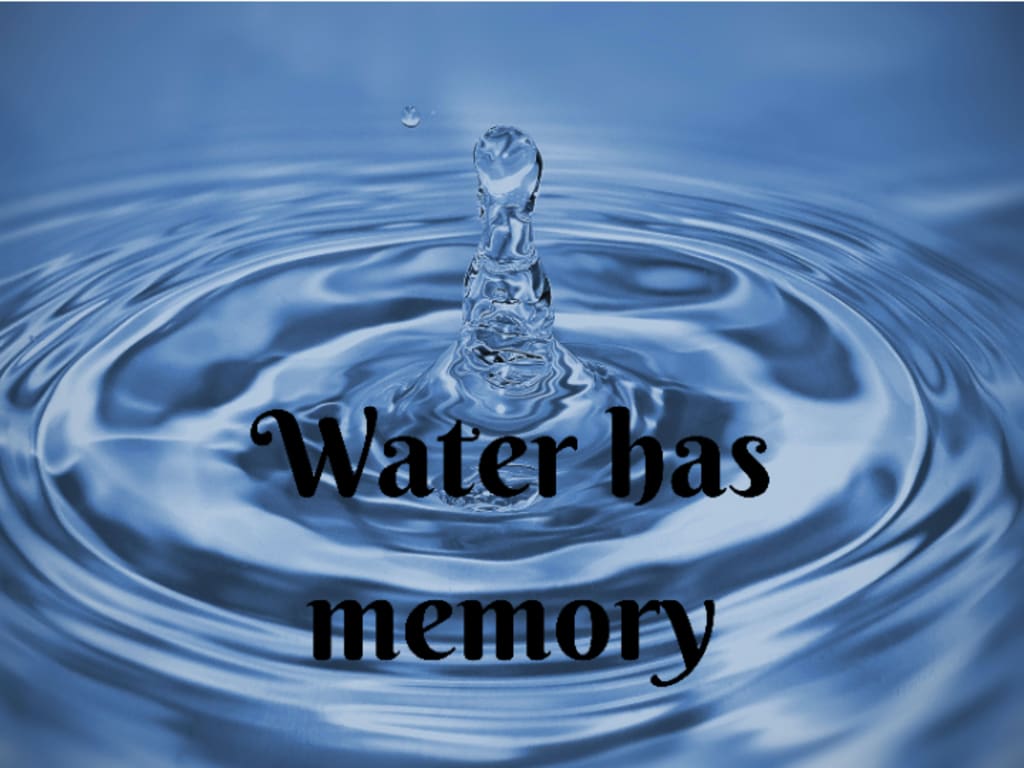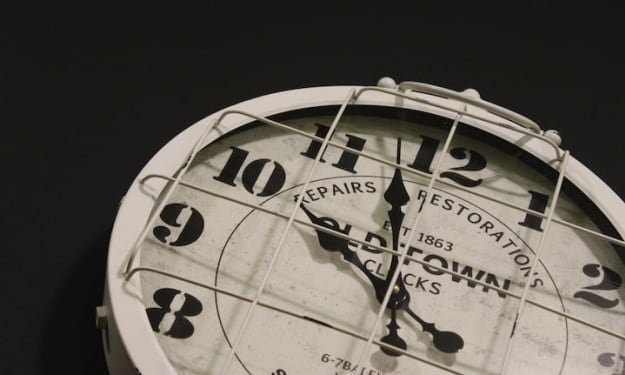Water Has Memory
Unraveling the Mysteries of Liquid

Water is a material that is found everywhere and is essential to keeping life on Earth alive. Scientists have been captivated by its special characteristics for centuries, and new discoveries are still helping to solve its mysteries. The idea that water has memory is one of the most fascinating and contentious ideas relating to water. This idea casts doubt on accepted scientific wisdom by implying that water has the capacity to retain knowledge from its surroundings. The idea of water memory, its history, the arguments in favor of it, and the current consensus among scientists will all be covered in this article.
The idea that water has memory dates back to tests with water undertaken by the German doctor and chemist Johann Jacob Reichenbach in the late 18th century. According to Reichenbach, water has the ability to hold onto and transmit important forces, sometimes known as "od" or "odic" forces. His studies of how the characteristics of water changed when exposed to various settings or energy sources served as the foundation for his theories.
The work of French immunologist Dr. Jacques Benveniste, meanwhile, did not garner considerable attention on the idea of water memory until the 20th century. In a contentious article published in the year 1988 in the magazine "Nature," Benveniste argued that even when no molecules of the original substance were left, very diluted solutions might nevertheless retain the characteristics of the substances they formerly contained. As a result, this phenomenon became known as the "memory of water."
In accordance with Benveniste's experiments, dissolved substances could leave a molecular "memory" or "signature" in water molecules. The water purportedly kept the potential to evoke biological reactions comparable to those of the original material even after the original substance was removed and the water was diluted until there were no molecules of the original substance left. This conclusion went against accepted chemical theories that claim that diluting a substance past a certain amount causes it to lose all of its qualities.
The release of Benveniste's study triggered contentious discussions among scientists, and many of them tried to reproduce his experiments to support or deny his assertions. While some researchers found comparable results, others were unable to duplicate the findings. These differences highlighted issues with the experimental procedures and the verifiability of the results.
The idea of water memory was generally rejected by the mainstream scientific community in the years that followed after it was connected to alternative and pseudoscientific theories. Nevertheless, a tiny team of scientists persisted in rigorously and objectively studying the phenomenon in an effort to ascertain whether the assertions regarding water's memory had any basis in fact.
Dr. Rustum Roy, a materials scientist at Pennsylvania State University, is one of the most well-known researchers in this area. He has done substantial research on the composition of water and its capacity for information retention. They contend that water is capable of forming complex networks of hydrogen bonds, resulting in a dynamic structure that is always changing and may be able to store information. Research on the concept of "structured water" is ongoing, but it is still debatable.
The study of homeopathy is another area of research that backs with the idea of water memory. Homeopathy is an alternative medical approach that treats a variety of illnesses by using greatly diluted ingredients. Some experts contend that there may be more to the highly diluted solutions used in homeopathic medicines than previously believed, despite the fact that the scientific community as a whole rejects the underlying concepts of homeopathy. Homeopathy's effectiveness and relationship to water memory are still hotly contested issues in the scientific community.
Recent improvements in scientific methodology and technology have made it possible for researchers to more efficiently study the molecular behavior of water. The majority of these research, however, have not offered conclusive proof in favor of the theory of water memory put out by Benveniste and others. According to skeptics, any effects that have been noticed are probably the result of experimental artifacts, contaminants, or other elements unrelated to water's memory.
In conclusion, the idea of water memory is still an interesting and debatable subject among scientists. Even though some academics have looked into the theory that water might contain memory-like qualities, the vast majority of scientific evidence contradicts this claim. Instead, the behavior of water is essentially known using recognized chemical and physics principles.
About the Creator
Anna Wilkins
Embark on an exciting journey of writing with me! Uncover my true passion for writing where I'll make sure to entertain you to bits. Don't forget to show me your reviews and responses through comments and likes, it will be appreciated.






Comments
There are no comments for this story
Be the first to respond and start the conversation.